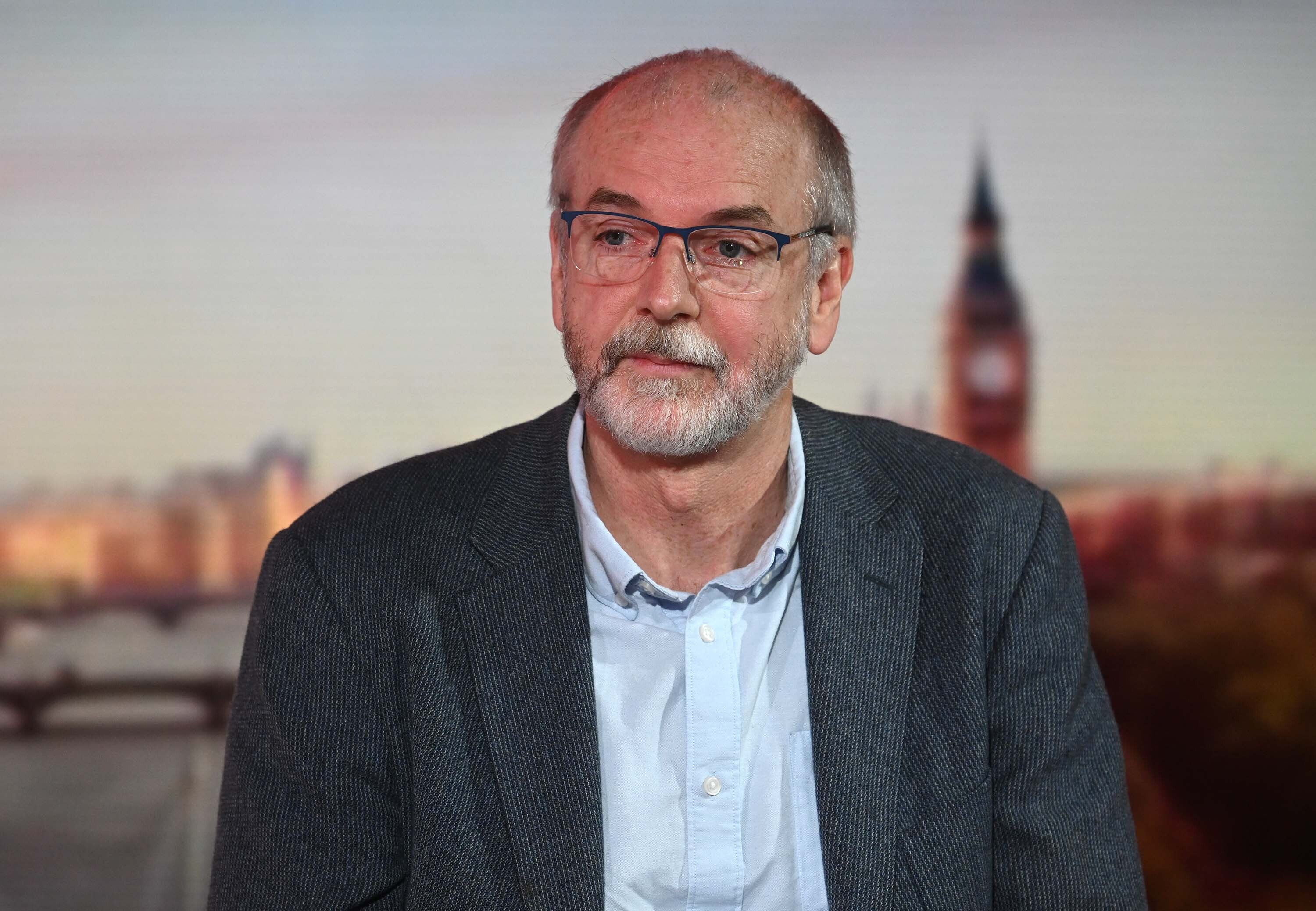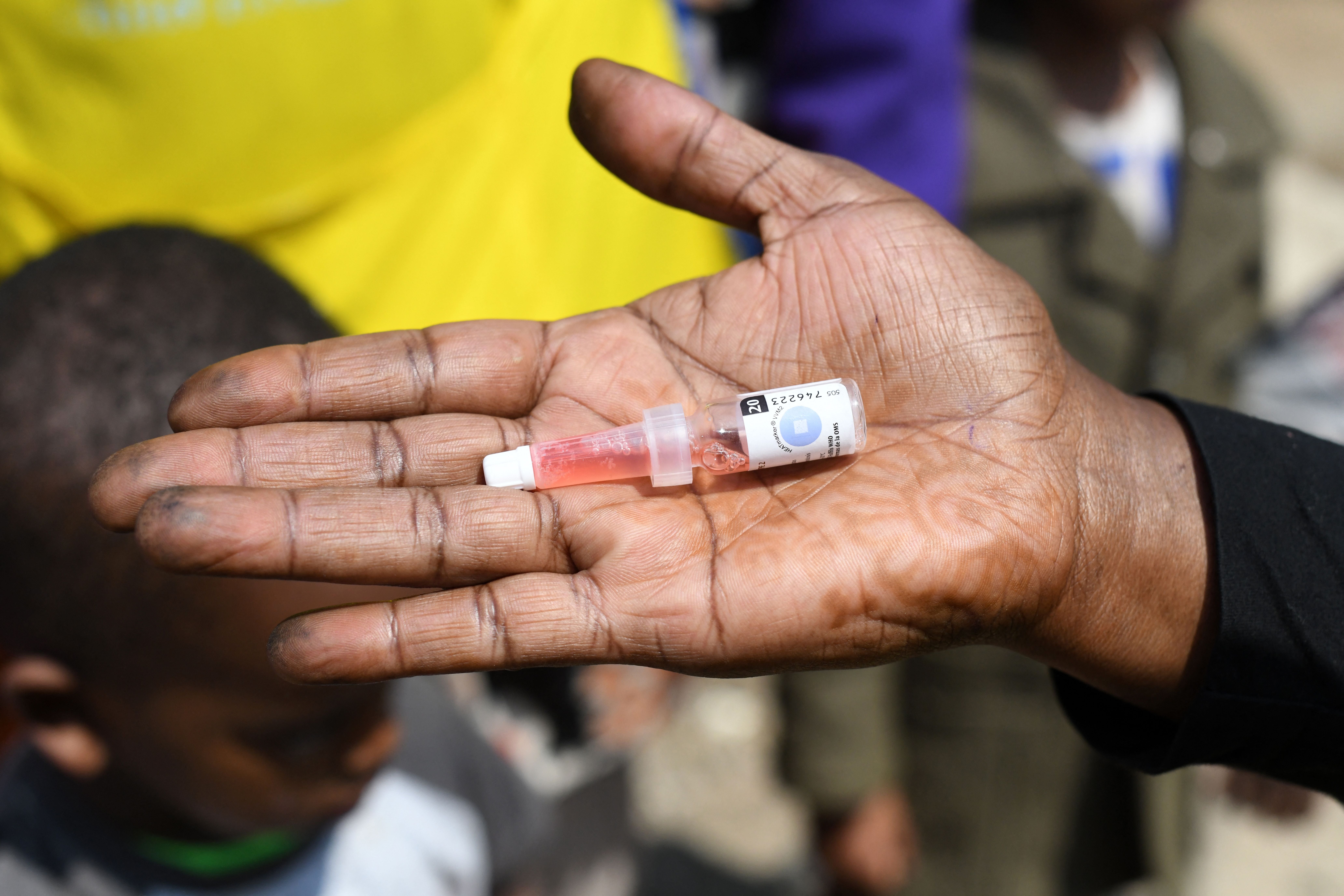Polio outbreak is ‘jolt’ needed to tackle falling child vaccine uptake ‘before it’s too late’, expert warns
‘There has been a general downward trend in coverage in most childhood vaccines over the past 5-10 years,’ say scientific advisers to the government

The UK polio outbreak should be the “jolt” that is needed to tackle falling vaccine rates in children “before it is too late”, a leading scientific adviser to the government has warned.
The proportion of infants and toddlers vaccinated against childhood diseases in England has fallen in the past five years and experts say the recent detection of polio in London wastewater provides a warning of a potential resurgence of other illnesses, such as measles.
Figures show that fewer children across the country received a vaccine in 2020-21 to protect against measles, mumps, rubella, polio, diphtheria and rotavirus, compared to 2016-17. London reported some of the lowest and sharpest declines during that time.
In a meeting held last summer by the government’s Joint Committee on Vaccination and Immunisation (JCVI), advisers said “there has been a general downward trend in coverage in most childhood vaccines over the past 5-10 years”, equivalent to an approximate 2.5 per cent decrease.
Professor Sir Andrew Pollard, a leading scientific adviser to the government and director of the Oxford Vaccine Group, said the polio outbreak – the first of its kind in nearly 40 years – should prompt authorities to address falling vaccine rates.
“Some reductions in coverage happened as a result of the pandemic, but there are some areas where vaccination rates [in young children] are lower than they should be, and this finding should jolt us into action before it is too late,” he told The Independent.
Complacency among parents, rising misinformation on social media and a lack of access in parts of the country have all played a role in driving down coverage rates in young children, with the trend exacerbated by the Covid pandemic, paediatricians say.
Scientists are particularly concerned about the persistently low uptake of MMR booster jabs in recent years, which protects against measles, mumps, and rubella. In 2020-21, some 92,875 – or 13.2 per cent of – children aged five in England had not received a second dose, which is needed to provide full protection.
“MMR is probably the one which has the worst uptake,” said Dr Liz Whittaker, a senior clinical lecturer in paediatric infectious diseases and immunology at Imperial College London.
“The booster dose has been lost the most during the pandemic, which is why we’re so worried about a measles outbreak at the moment because we know that with the one dose of measles and incomplete coverage leaves us short.”

Dr Maggie Wearmouth, a former JCVI member, said measles was becoming “a major concern for the future”, adding that it was vital parents get their children vaccinated against the infection, which in rare instances, can lead to severe respiratory and neurological complications.
Britain last saw a sharp rise in measles in 2018, when 991 cases were confirmed in England and Wales.
In the past five years, uptake of a vaccine that protects babies against six serious conditions including polio, diphtheria and hepatitis B, has fallen from 93.4 per cent to 92 per cent. In London, the decline has been more acute, decreasing from to 88.8 per cent to 86.7 per cent.
In 2020-21, the borough of Hackney had the lowest vaccine coverage rates for babies in the country. Just 67.8 of children there had received the 6-in-1 jab, while only 63.9 per cent had been vaccinated against rotavirus. Low uptake was also recorded in Camden, Haringey, Birmingham and Liverpool, figures show.
Paul Hunter, a professor of medicine from the University of East Anglia, said the low coverage in parts of London had set the foundations for the recent polio outbreak.
Samples of the virus were detected in wastewater and appear to show genetic signs of having evolved while spreading between people in the northeast of the capital.

“You rarely see this sort of pattern in places where you’ve got high vaccine coverage,” he said. “It’s spreading in north London because it’s in communities that have had a low vaccine uptake.”
MMR coverage has similarly dropped in recent years. In 2016-17, some 91.6 per cent of under-twos in England had received their first dose. By 2020-21, this had fallen to 90.3. Once again, the drop-off was more noticeable in the capital, decreasing from 85.1 per cent to 82.4 per cent.
Dr Whittaker said there were three main reasons – “the three Cs” – why uptake of childhood vaccinations had fallen.
“Complacency, so people don’t see the infections,” she said. “They don’t see that it’s a problem. The prioritisation of vaccination becomes lower because we have such good coverage and parents aren’t as concerned.
“Convenience, making sure that it’s easy for parents to access the vaccinations their children need. Maybe they can’t afford to travel to a GP, or a parent returns to work and doesn’t have the time they previously did to take their child for a follow-up jab.
“And confidence. People have more access to information in a way that they never had before, and that information isn’t always rational. It’s perhaps not as accurate or is misleading and puts people off. Rising mistrust of health authorities in certain communities also plays a role.”
NHS England has been approached for comment.






Join our commenting forum
Join thought-provoking conversations, follow other Independent readers and see their replies
Comments